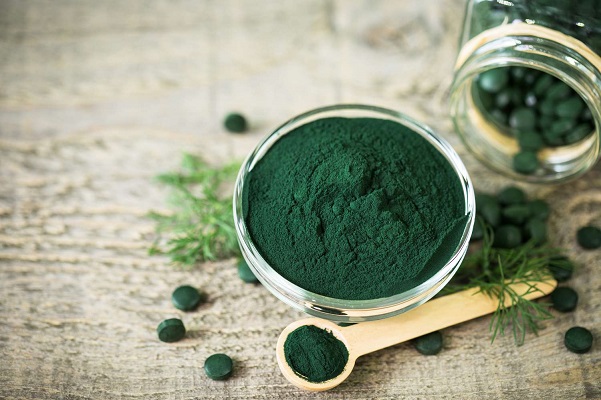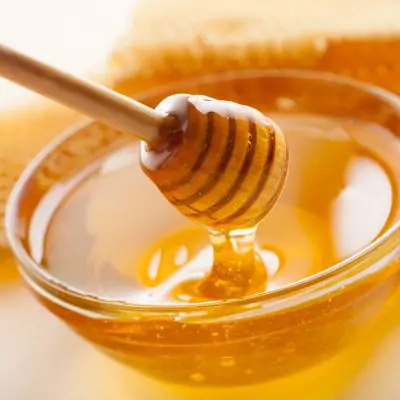On This Page
Overview
The pumpkin’s tiny, edible seeds are filled with more nutrients than you may imagine. Despite being so small, pumpkins are a nutritious powerhouse that our systems depend on. As a result, pumpkins have many health advantages, including helping people lose weight. Additionally, pumpkin gives a distinct flavor and crunch to our dishes while also making them a healthier superfood.
Synonyms of Pumpkin
- Pepitas
- Kaddu
- Bhopla
- Cucurbita moschata
Nutritional Facts of Pumpkin
One cup of raw pumpkin has
| Calories: | 30 |
| Protein: | 1 gram |
| Fat: | 0 grams |
| Carbohydrates: | 7 1/2 grams |
| Fiber: | 1/2 gram |
| Sugar: | 3 grams |
Phytochemical Constituents of Pumpkin
- Carotenoids (beta-carotene, zeaxanthin, lutein)
- Phenolic acids
- Flavonols
Therapeutic Uses of Pumpkin
- For Good Vision
The health benefits of a pumpkin are potent. Pumpkin’s beta-carotene supplies the body with essential vitamin A, whose lack is a frequent cause of blindness. Pumpkins contain Vitamin A in abundance which helps in vision.
- Lowers Chance of Heart Disorders
Pumpkin lowers the risk of heart disease and stroke by assisting in the removal of arterial deposit buildup. Additionally, the pumpkin’s strong antioxidant content protects atherosclerosis (hardening of arteries). Low blood pressure risk is minimized. Pumpkin also contains a lot of phytosterols, a substance that resembles human cholesterol a lot. It restores the cholesterol to a normal range.
- Controls Inflammatory Diseases
Additionally, pumpkin consumption regularly lowers the risk of contracting inflammatory disorders. It may help lower the chance of developing rheumatoid arthritis.
- Relieves Asthma Attacks
Asthma attacks are decreased by pumpkin’s antioxidant qualities, which shield the respiratory system from infections.
- Obesity
Pumpkin seeds are a great source of fiber, protein, and unsaturated fatty acids, all of which are known to help with weight loss. By increasing feelings of fullness, fiber helps prevent between-meal overeating that could otherwise result in weight gain or impede weight loss.
Home Remedies of Pumpkin
- Aids in dismissing dark spots
Pumpkin also aids in the elimination of skin discolorations. Simply combine 1 tablespoon pumpkin puree, 1 teaspoon honey, 1 teaspoon lemon juice, and 1 teaspoon vitamin E oil in a combination. Apply this mixture to your moist face after thoroughly blending it. Keep it on your face for at least 30 minutes or until it dries. After that, rinse with warm water.
- Cures burns, bites, and inflammation
Pumpkin can be used to treat bites from insects as well as burns, abscesses, and inflammation. The cause for this is that it acts as a cooling agent and aids in providing relief. Additionally, it has a significant amount of antioxidants in the form of vitamins A, C, and E as well as zinc, which ultimately makes it a remarkable healing agent. Therefore, it is recommended that you eat pumpkin frequently, ideally three times a week.
- Lip balm
You may also use pumpkin as a lip balm if you want to have lovely, full lips. This concoction is lip balm with plumping pumpkin spice. All you need is 3 tablespoons of grated beeswax and 6 teaspoons of coconut oil. Place them in a double boiler and heat them gently. Stir in 1 teaspoon pumpkin puree, 2 teaspoons pumpkin spice, and 1 teaspoon vanilla essence after they have melted. After thoroughly stirring the mixture, let it cool. Before capping it, place it in a container and give it time to set.
- Pumpkin juice for liver purification and kidney stones
The biologically active components in pumpkin cleanse the liver naturally. Therefore, add it to your everyday diet.
Drink a half glass of pumpkin juice three times each day for 30 days if you have gallbladder issues and kidney stones.

Have A Health Issue?
Consult Online
- Dr. Sahil Gupta (B.A.M.S., M.H.A.)
Ayurvedic Allergy Specialist
CEO & Founder of IAFA®
Ayurvedic Aspects of Pumpkin
Pumpkin is regarded as a sattvic meal in Ayurveda. Its fantastic relaxing, grounding, and clarifying qualities make it a beloved dish, especially as the seasons change and it gets cooler. Both Vata and Pitta are balanced by this fruit. Nutrient-rich pumpkins have a wide range of health benefits for us.
Daily Dose: The advised daily intake for adults is 28 g
Side Effects of Pumpkin
- Allergies
Despite not being as allergenic as other seeds, allergic responses to pumpkin seeds are nevertheless possible. The skin is the organ that these allergies most frequently attack. So, if you are allergic to pumpkin seeds, you can notice these symptoms: scaly, irritated, and red skin, hives and itching, and allergic asthma.
- Stomach Ache
Large amounts of pumpkin may cause stomach-related problems, most notably stomach discomfort. It’s because pumpkins have a high content of fatty acids, which if ingested in excess can lead to stomach discomfort, cramps, and agony.
- Not Secure for Infants
Due to their high protein and iron content, pumpkins make a tasty snack for kids. These are not advised for infants, though, because of their high fiber and fatty acid content, which can result in stomach cramps, discomfort, vomiting, and even diarrhea.
- Low Blood Pressure
Antioxidants naturally abound in pumpkin. they can drop blood pressure as a result. It is advised to stay away from them if you have hypotension and are using anti-hypertensive drugs.
Conclusion
One of the healthiest things you can eat is pumpkin. They are a healthy, abundant natural source of fiber, protein, unsaturated fats, minerals, and vitamins. They are a simple approach to support your efforts to lose weight and improve your health. It’s vital to incorporate eating pumpkin into your everyday routine. Pumpkin can cause allergic reactions or interfere with the effectiveness of some drugs if taken in excess. Therefore, if you encounter any negative effects, restrict your intake or talk to your health experts. In case of any allergy or side effects from pumpkin, you can schedule an appointment with Dr. Gupta at IAFA. He uses ayurvedic management to cure allergies and other illnesses.
References
- International Journal of Medical and Biomedical Studies: “ROLE OF NUTRITION IN MAINTAINING NORMAL EYESIGHT-A REVIEW.”
- https://www.tandfonline.com/doi/full/10.1080/19476337.2020.1778092#:~:text=It%20is%20particularly%20rich%20in,in%20the%20examined%20pumpkin%20 cultivars.










